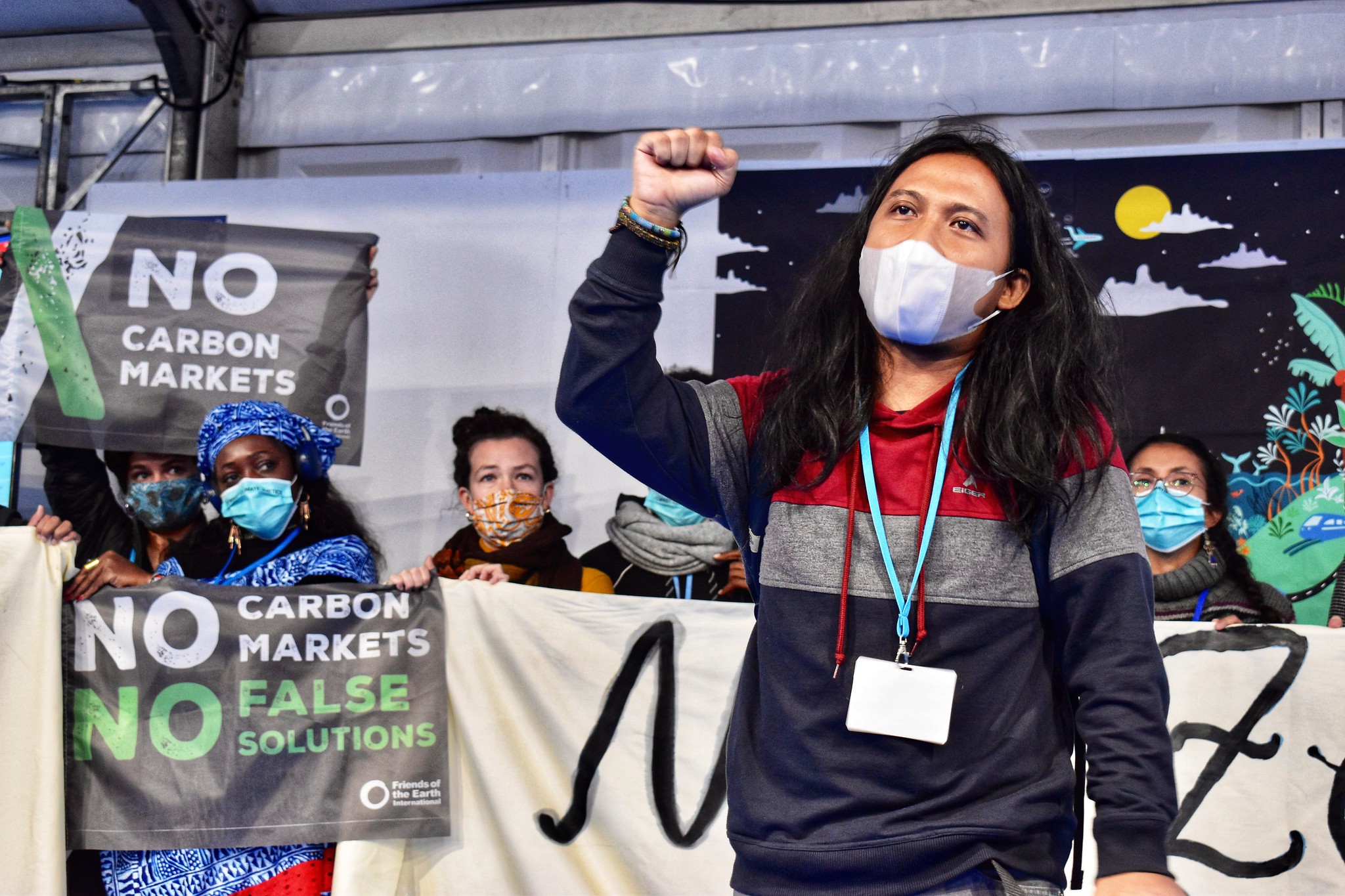
Biomass proposals blow apart government’s promises on climate justice, claim environmental campaigners
Environmental campaigners warn that the damaging impact on poor communities of costly subsidies for large scale biomass will undermine the benefits from the Scottish Government’s new Climate Justice Fund.
The Scottish Government last week announced the first round of community projects in developing countries to be supported by its new £3m Climate Justice Fund (1). This laudable commitment would be dwarfed by government proposals to provide hundreds of millions of pounds in subsidies to companies burning biomass for electricity. Scottish households will pay for this through a levy on electricity bills. Forth Energy, which has plans for three large biomass power stations in Rosyth, Dundee, and Grangemouth, will receive over £220m each year if all three power stations are built.
Andrew Llanwarne of Friends of the Earth Scotland (2), said:
“Forth Energy admits that up to 90% of the 3.5m tonnes of wood they want to burn will be imported. If subsidy proposals go ahead, other companies may follow their example. The impact of such new demand on developing countries is likely to be devastating, and may threaten poor communities. Forth Energy has already spoken of using eucalyptus from Brazil, where large numbers of communities have lost their land and access to water to eucalyptus plantations. There is also mounting evidence that biodiversity-rich forests are being destroyed to meet demand for biomass.”
Walter Inglis, Grangemouth Community Council (3), said:
“Big biomass plants such as those planned by Forth Energy are environmentally unsustainable. Why would we as a nation think it appropriate to harvest, transport and burn biomass fuel from overseas to reduce our carbon footprint? Meanwhile, the Grangemouth community will suffer from even more air pollution if this power station is granted planning permission and if the subsidies are introduced.”
Sally Millar, No Leith Biomass (4), said:
“Scotland’s Climate Justice Fund offers £3m to support climate justice. Yet at the same time, Scotland would itself be perpetrating climate injustice through subsidies to large-scale, inefficient biomass power stations. To add insult to injury, it is the Scottish electricity bill payer who has to foot the bill. Does the public want to be forced to pay higher electricity bills to finance more forest loss and land grabs in developing countries, and more carbon emissions and air pollution here in Scotland? No.
The Scottish Parliament will be reviewing Government proposals to subsidise biomass in early 2013, which would pave the way for the Government to subsidise the proposed Forth Energy plants provided they meet an efficiency threshold which is only half the standard set by the EU. (5)
ENDS
For media enquiries, please contact: Per Fischer, Press Office, Friends of the Earth Scotland
t: 0131 243 2719
Almuth Ernsting, Biofuelwatch co-director
t: 01316232600
Notes to Editors
1. Paul Wheelhouse, Minister for Environment and Climate Change, revealed on 28th November that projects in Malawi and Zambia will benefit from Scotland’s £3 million Climate Justice Fund: Government news release at
www.scotland.gov.uk/News/Releases/2012/11/climate-justice28112012
2. Friends of the Earth Scotland is * Scotland’s leading environmental campaigning organisation * An independent Scottish charity with a network of thousands of supporters and active local groups across Scotland * Part of the largest grassroots environmental network in the world, uniting over 2 million supporters, 77 national member groups, and some 5,000 local activist groups – covering every continent.
www.foe-scotland.org.uk
3. Grangemouth Community Council is made up of elected volunteers who represent the views of the Grangemouth community to the council and other regulatory bodies on matters for which those bodies have responsibility. It took a lead role in a Public Inquiry into the proposed Forth Energy power station at Grangemouth in May 2012.
www.grangemouthcommunitycouncil.org
4. The No Leith Biomass Campaign is a volunteer-led organisation which campaigned against Forth Energy’s proposals for a biomass power station in Leith. The application was withdrawn in February 2012.
www.noleithbiomass.org.uk
5. Under proposed changes to the Renewables Obligation, biomass power stations which produce some heat achieve as little as 35% efficiency will be classed as ‘Combined Heat and Power’ and attract the highest rate of renewable electricity subsidies.
www.chpqa.com/guidance_notes/GUIDANCE_NOTE_44.pdf
By contrast, Article 13(6) of the Renewable Energy Directive requires Member States to promote conversion efficiencies of 70% for industrial biomass applications:
eur-lex.europa.eu/LexUriServ/LexUriServ.do?uri=Oj:L:2009:140:0016:0062:en:PDF
